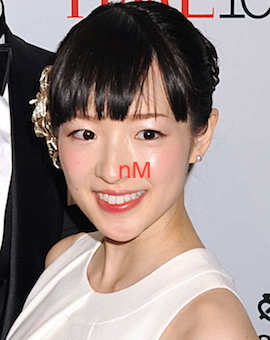KonMari: Philosophy of household goods at rest or in service
Discard everything that does not "spark joy," after thanking the objects that are getting the heave-ho for their service; and do not buy organizing equipment -- your home already has all the storage you need.
She proposes a similarly agreeable technique for hanging clothing. Hang up anything that looks happier hung up, and arrange like with like, working from left to right, with dark, heavy clothing on the left: "Clothes, like people, can relax more freely when in the company of others who are very similar in type, and therefore organizing them by category helps them feel more comfortable and secure."
Smaller, English-only under-titles:
Such anthropomorphism and nondualism, so familiar in Japanese culture, as Leonard Koren, a design theorist who has written extensively on Japanese aesthetics, told me recently, was an epiphany to this Westerner. In Japan, a hyper-awareness, even reverence, for objects is a rational response to geography, said Mr. Koren, who spent 10 years there and is the author of "Wabi-Sabi for Artists, Designers, Poets & Philosophers."
More spiritually, the idea of non-dualism is a relationship to reality that proposes that everything is inextricably connected and alive, even inanimate objects. If we are compassionate and respectful to everything that exists, then we would have to be compassionate about the socks in the drawer that aren't folded properly."
Indeed, Ms. Kondo's instructions regarding socks are eye-opening. Socks bust their chops for you, and if you ball them up, they don't get a chance to rest. As she puts it, "The socks and stockings stored in your drawer are essentially on holiday. [NYT]"
"The Life-Changing Magic of Tidying Up," a mystical manifesto [WSJ] on letting go of the stuff we don't need, has become a global publishing phenomenon. It's the kind of book that publishers dream of, one that arrives perfectly timed to both lead and reflect a shift in the zeitgeist.
Ms. Kondo's book has captured the imaginations of readers around the world at a moment when many people seem to have reached a tipping point of clutter in their lives. It coincides with the recovering economy, an increase in donations of clothing and household goods to charity and a trend toward downsizing as U.S. population growth shifts from the suburbs to city centers in many areas.
In Japan more than anywhere else, tidiness is less a virtue than a philosophy of living. The reason is simple: Japanese apartments are tiny, while the range of stuff a person can buy is huge. Disorder results [NY Mag].
newyorker.com/culture/culture-desk/shopping-at-anthropologie-with-marie-kondo.
Kondo favors a radical approach to decluttering that advocates downsizing your stuff in one fell swoop; insists that storage containers promote hoarding [Slate], not organization.
